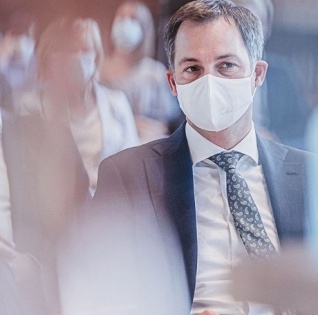Belgian PM calls for unity in the face of the energy crisis
By IANS | Published: November 10, 2022 01:42 PM2022-11-10T13:42:04+5:302022-11-10T14:00:22+5:30
Brussels, Nov 10 Belgian Prime Minister Alexander De Croo called on citizens to stand together in the face ...

Belgian PM calls for unity in the face of the energy crisis
Brussels, Nov 10 Belgian Prime Minister Alexander De Croo called on citizens to stand together in the face of the energy crisis.
The call came after a general strike over purchasing power and wages, organised by the Belgian General Federation of Labor (FGTB) and the Confederation of Christian Trade Unions (CSC), reports Xinhua news agency.
A slowdown in activity was observed throughout the country in a range of sectors, notably in hospitals and on public transport.
Only a quarter of trains were in service on Wednesday, while service was also heavily reduced in supermarkets, as well as among the police force and the airline sector.
Prime Minister De Croo said that his government has already taken a series of exceptional measures, ranging from an intervention of up to 1,000 euros on energy bills this winter, to an "extended social energy tariff, granted to one million families".
He also emphasized that Belgium has an automatic wage indexation mechanism, "a unique system that protects Belg against the loss of purchasing power and inflation".
The general strike was announced several weeks ago to protest rising gas and electricity costs, and falling purchasing power.
According to CSC, many workers are facing great financial difficulties and fear that they are facing a freezing winter.
Many people are drowning in skyrocketing bills, CSC says, adding that the rise in energy prices also affects companies and pensioners, as well as sick, unemployed and disabled people, who receive small social allowances which are sometimes below the poverty line.
The trade unions called on the government to take more concrete measures. In particular, these would include capping gas and electricity prices, and extending a social energy tariff so that it would apply to middle and low-incomes.
Disclaimer: This post has been auto-published from an agency feed without any modifications to the text and has not been reviewed by an editor
Open in app